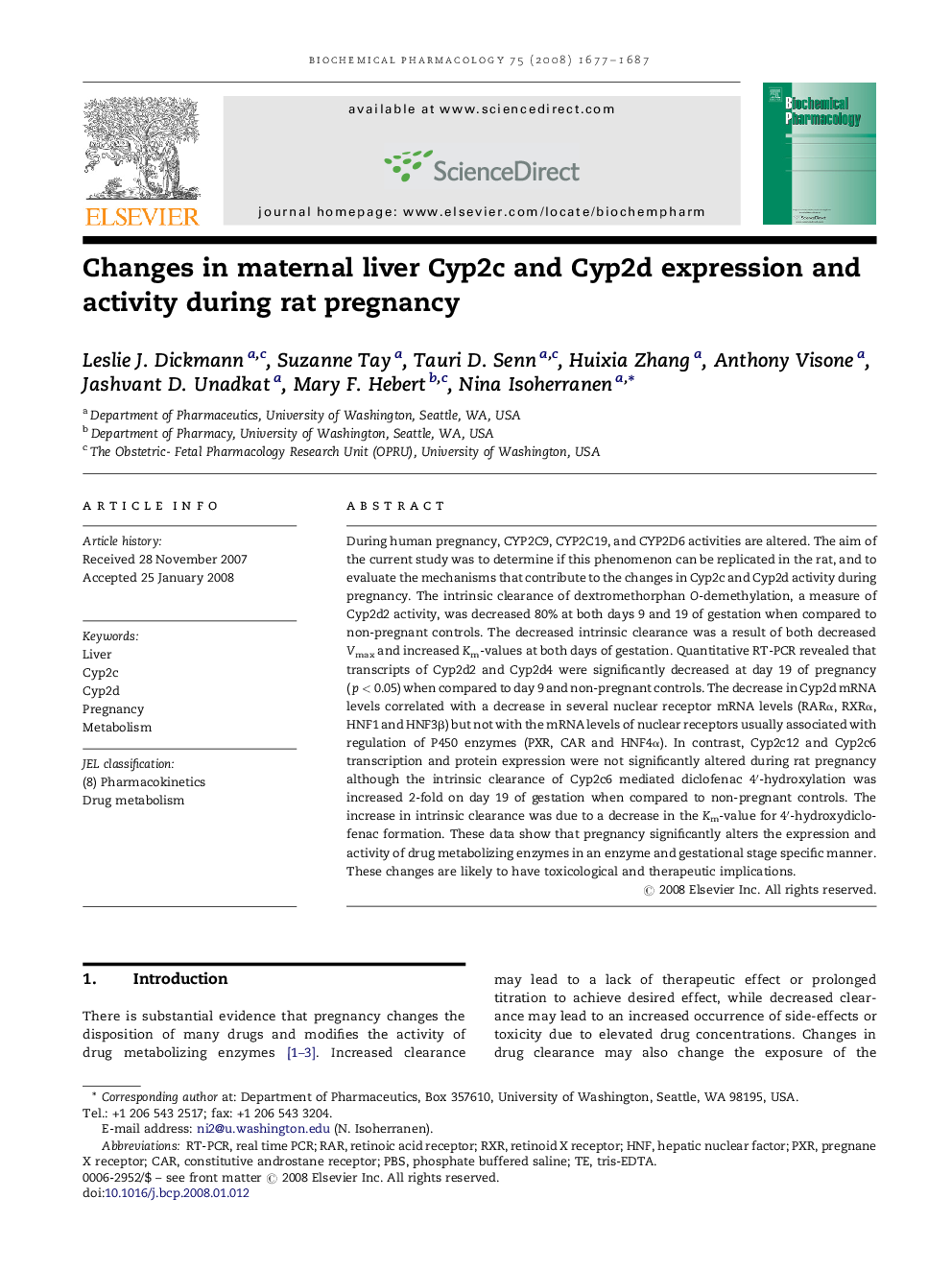| Article ID | Journal | Published Year | Pages | File Type |
|---|---|---|---|---|
| 2514422 | Biochemical Pharmacology | 2008 | 11 Pages |
During human pregnancy, CYP2C9, CYP2C19, and CYP2D6 activities are altered. The aim of the current study was to determine if this phenomenon can be replicated in the rat, and to evaluate the mechanisms that contribute to the changes in Cyp2c and Cyp2d activity during pregnancy. The intrinsic clearance of dextromethorphan O-demethylation, a measure of Cyp2d2 activity, was decreased 80% at both days 9 and 19 of gestation when compared to non-pregnant controls. The decreased intrinsic clearance was a result of both decreased Vmax and increased Km-values at both days of gestation. Quantitative RT-PCR revealed that transcripts of Cyp2d2 and Cyp2d4 were significantly decreased at day 19 of pregnancy (p < 0.05) when compared to day 9 and non-pregnant controls. The decrease in Cyp2d mRNA levels correlated with a decrease in several nuclear receptor mRNA levels (RARα, RXRα, HNF1 and HNF3β) but not with the mRNA levels of nuclear receptors usually associated with regulation of P450 enzymes (PXR, CAR and HNF4α). In contrast, Cyp2c12 and Cyp2c6 transcription and protein expression were not significantly altered during rat pregnancy although the intrinsic clearance of Cyp2c6 mediated diclofenac 4′-hydroxylation was increased 2-fold on day 19 of gestation when compared to non-pregnant controls. The increase in intrinsic clearance was due to a decrease in the Km-value for 4′-hydroxydiclofenac formation. These data show that pregnancy significantly alters the expression and activity of drug metabolizing enzymes in an enzyme and gestational stage specific manner. These changes are likely to have toxicological and therapeutic implications.
